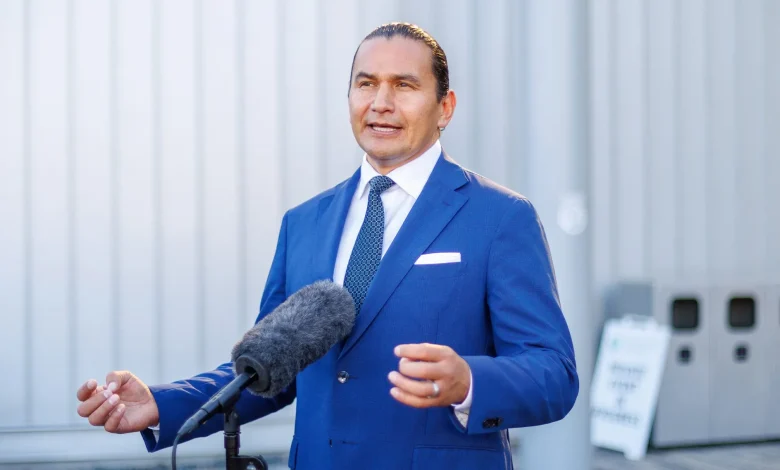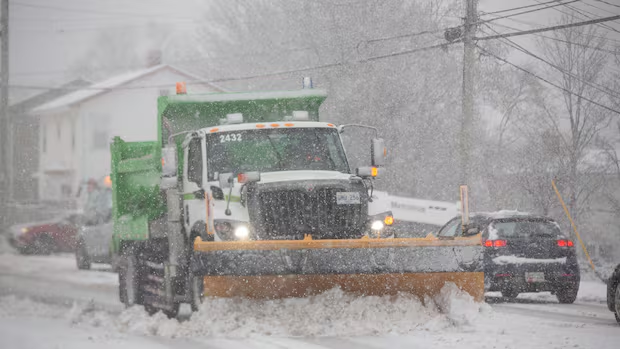Supervised drug consumption site to open in January

Manitoba’s NDP government will open the third session of the 43rd legislature today with a pledge to have a supervised drug consumption facility up and running in January, the Free Press has learned.
The speech from the throne will, for the first time in the province’s history, be presented in English, French and Anishinaabemowin, the Manitoba dialect of the Ojibwa or Anishinaabe peoples.
And, after relying on an American company to sell provincial park passes and hunting and fishing licences for the past five years, Winnipeg-based Online Business Systems has been contracted to take over starting in 2026. The new deal is expected to create about 40 local jobs, a source said.
“Our supervised consumption site will start operations in Winnipeg this January to bolster our expert-led response and connect people with the health care they need,” says the legislative blueprint, which will be read by Lt.-Gov. Anita Neville beginning at about 1:30 p.m.
Ruth Bonneville / Free Press Files
Lt.-Gov. Anita Neville (centre) will open the third session of the 43rd legislature today with a speech from the throne that will, for the first time in the province’s history, be presented in English, French and Anishinaabemowin.
The speech is not expected to identify the location of the facility, but sources have told the Free Press that the NDP has been looking to the eastern edges of Point Douglas, well away from any schools or daycares, but still accessible to people suffering from substance addictions.
A previous proposal for Point Douglas — which was abandoned in September shortly after Labour Day — would have seen a supervised consumption facility located at 200 Disraeli Fwy., a building that has been used for a variety of social services, including as an emergency shelter during the worst years of the pandemic.
Local opposition to the site centred on concerns it was located too close to schools and child-care facilities.
Despite evidence from other communities that supervised consumption sites make neighbourhoods safer, the government ultimately decided to stand down.
However, Premier Wab Kinew promised his government still supported supervised consumption, and the province continued to work to find another location that would ease community concerns but still provide a site for users and drug testing in the downtown where drug use and homelessness is chronic.
MIKE DEAL / FREE PRESS FILES
Premier Wab Kinew has promised his government still supports supervised consumption.
Kinew promised that when his government was ready to unveil a new proposal, it will include a minimum 250-metre buffer zone from any schools or daycares.
The province also acknowledged it would have to resubmit an application to the federal government to operate the site. Health Canada is the only authority that can provide exemptions from Criminal Code provisions to allow a province to operate a supervised consumption facility.
Health Canada’s website, which includes real-time updates on the status of applications, shows no active request for an exemption related to a stand-alone supervised consumption site in downtown Winnipeg.
The decision to have the throne speech translated into Anishinaabemowin is part of several initiatives announced by the province in recent months to preserve Indigenous languages and encourage young people and others to stay connected to their cultural roots.
“The translation is significant because, as the speech itself says, Anishinaabemowin is the language that named our province,” said a spokesperson from the premier’s office. “It means a significant government document, which outlines the priorities of our government, is accessible to all Manitobans.”
Winnipeg Free Press | Newsletter
The translation was done by two Manitobans who have been hired as “language protectors.”
Kinew, who is Anishinaabe and speaks his native tongue, announced a pilot project in March to translate Hansard — the official transcript of the debates and proceedings of the legislative assembly — into seven Indigenous languages, beginning with Anishinaabemowin.
The two people who translated the throne speech have been working on the Hansard project.
The province last month announced $4.5 million in funding for new Indigenous language programs at two post-secondary institutions, including the creation of a bachelor of arts in Indigenous language immersion in Anishinaabemowin, at the University of Winnipeg.
The three initiatives are considered important aspects of reconciliation after decades of government policy, dating back to the late 1800s, where Canada sought to systematically erase Indigenous culture and language — including through residential schools — in an effort to assimilate Indigenous people into European culture.
The former Progressive Conservative government hired Aspira, a Dallas-based outdoor-recreation software firm, in April 2019 to launch virtual retail sales of park passes and fishing and hunting licences as of 2020.
Daniel Crump / FREE PRESS FILES
Visitors enjoy the beach at Birds Hill provinicial park. Winnipeg-based Online Business Systems has been contracted to take over the sales of provincial park passes and hunting and fishing licences starting in 2026.
The e-licensing system allowed Manitobans to buy passes online for the first time and introduced a $4.50 administration fee on all transactions, prompting mixed reviews.
The extra fees doubled the price of a day pass, drew criticism from local retailers who were paid just $1 to administer passes in person and generated more than $1.3 million in annual revenues for Aspira.
In 2023, the provincial ombudsman found the e-licensing system contravened the Freedom of Information and Protection of Privacy Act by collecting more information than reasonably necessary.
Calls to use a local company to handle the park pass system grew louder as the trade conflict escalated between Canada and the United States last winter. The contract with Aspira was set to expire in April this year, but the government had the option to renew the agreement for two, one-year terms.
“It doesn’t make any sense, whatsoever,” Kinew said at the time. “Shouldn’t we be paying a Manitoba company to enjoy Manitoba?”
It’s not yet clear whether the administration fees will change under the new contract.
Online Business Systems, an IT service and consultation firm founded in Manitoba in 1986, and has since grown to more than 300 staff across Canada and the United States.
No one from the company could be reached for comment Monday.
dan.lett@freepress.mb.ca
tom.brodbeck@freepress.mb.ca
julia-simone.rutgers@freepress.mb.ca
Dan Lett
Columnist
Born and raised in and around Toronto, Dan Lett came to Winnipeg in 1986, less than a year out of journalism school with a lifelong dream to be a newspaper reporter.
Read full biography
Tom Brodbeck
Columnist
Tom Brodbeck is an award-winning author and columnist with over 30 years experience in print media.
Read full biography
Julia-Simone Rutgers
Reporter
Julia-Simone Rutgers is a climate reporter with a focus on environmental issues in Manitoba. Her position is part of a three-year partnership between the Winnipeg Free Press and The Narwhal, funded by the Winnipeg Foundation.
Read full biography
Our newsroom depends on a growing audience of readers to power our journalism. If you are not a paid reader, please consider becoming a subscriber.
Our newsroom depends on its audience of readers to power our journalism. Thank you for your support.





